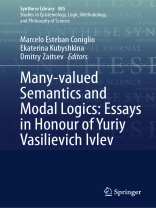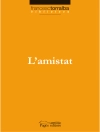This volume is a collection of essays related to the work of Professor Yuriy Vasilievich Ivlev, a distinguished Russian logician and philosopher renowned for his expertise in many-valued and modal logics. Notably, his groundbreaking work on quasi-matrices for logics, now recognized as non-deterministic matrices and non-deterministic semantics, emerged in the 1970s. From a philosophical standpoint, Ivlev’s research delves into the formal analysis of indeterminacy, offering a logical framework to understand how sequences of indeterminate events can yield determinate outcomes. The volume follows two complementary lines of research. Firstly, it serves as a platform for the exploration and discussion of Ivlev’s seminal contributions to the algebraic characterization of both normal and non-normal modal logics, aimed at making these insights accessible to an international audience. Secondly, it features contributions from esteemed logicians and philosophers worldwide, offering diverseperspectives on the logical analysis of indeterminacy. This comprehensive volume will appeal to scholars and researchers in logic, philosophy, and mathematics who are engaged in the study of many-valued and modal methodologies for modeling situations of indeterminacy.
Table des matières
Part I: Translation of Quasi-matrix (quasi-functional) logic.- 1. Quasi-matrix (quasi-functional) logic (Yuriy Vasilievich Ivlev).- Part II: Many-valued logics with indeterminacy.- 2. A Cartography of LFIs and Truth (Eduardo Barrio and Federico Pailos).- 3. On Non-deterministic Functional Completeness (Arnon Avron).- 4. Non-deterministic logic of generalized classical truth values (Oleg Grigoriev and Yaroslav Petrukhin).- 5. Tableau systems for some Ivlev-like (quantified) modal logics (Marcelo E. Coniglio, Luis Fari˜nas del Cerro, and Newton M. Peron).- 6. Plurivaluationism, Semantic Nondeterminism and Communication (Nicholas J.J. Smith).- Part III: Many-valued and modal logics.- 7. Algebras and relational frames for G¨odel modal logic and some of its extensions (Tommaso Flaminio, Lluis Godo, Paula Mench´on, and Ricardo O. Rodriguez).- 8. Many-Valued Modalities and Paraconsistency (Juliana Bueno-Soler, Walter Carnielli, and Abilio Rodrigues).- 9. On Ivlev’s semantics for modality (Hitoshi Omori and Daniel Skurt).- 10. Valuation semantics for some systems of non-normal modal logic (Cezar A. Mortari).- 11. Efficient reasoning about knowledge and common knowledge (Andreas Herzig and Elise Perrotin).
A propos de l’auteur
Marcelo E. Coniglio is a full professor at the Philosophy Department of the Institute of Philosophy and the Humanites (IFCH) of the University of Campinas (Unicamp). He got his Ph D in Mathematics from the University of São Paulo (Brasil) in 1997. Since 2002 he is member of the Centre for Logic, Epistemology and the History of Science (CLE) of Unicamp. Since 2014 he is Director of CLE. He was President of the Brazilian Logic Society (SBL), period 2014-2017. He has experience in Philosophy, focusing on Logic and the Foundations of Mathematics. He has published more than sixty refereed articles and published and edited six books on different subjects of non-classical Logic, with emphasis on paraconsistent logics, combination of logics, translation between logics, and category theory.
Ekaterina Kubyshkina is a post-doctoral researcher at Centre for Logic, Epistemology and History of Science, University of Campinas (Brazil). She obtained her Ph. D. from the University Paris 1 Panthéon-Sorbonne in 2018 in Philosophy. During her Ph.D. she worked at the Institute for the History and Philosophy of Science and Technology (Paris, France). Her research interests include topics in Logic, Philosophy of Logic and Formal Epistemology. Her current research project focuses on logical and epistemological analysis of the notions of knowledge and ignorance.
Dmitry Zaitsev is a full professor working as the Department of logic (Faculty of Philosophy, Lomonosov Moscow State University (MSU)). He earned his Doctor of Science degree in 2012 with MSU. Currently he holds a position of Deputy Dean in charge for Development and Innovation. He gives a regular 3-semester course of lectures in logic as well as number of special courses at the Faculty of Philosophy. His research interests lie in the areas of relevant and many-valued logic, formal modeling of argumentation, and theory of concepts. In recent years, he has obtained someresults in the field of neurophilosophy and cognitive science.












